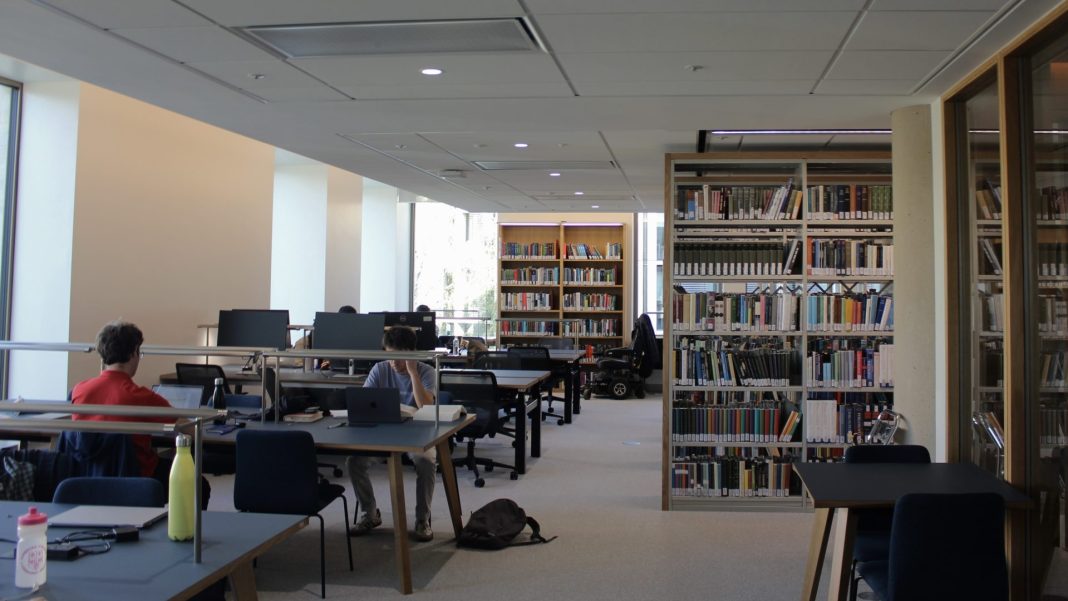Having been on the receiving end of a lot of self-proclaimed STEM superiority over the past two years at Oxford, I must admit it gets pretty tiresome. As a French student, you learn to expect a certain amount of “mickey mouse” allegations and light-hearted mockery about spending an eternity on LinkedIn post-graduation. But some students take this hierarchy of disciplines past the point of mere irony – “You know medics learn more words per week than language students” was an oft-quoted adage during my first year.
Much like how Oxford students supposedly all believe their college is the best, we’re all inclined to think that our degree is harder than other people would assume. Nonetheless, some STEM students fail to recognise that humanities degrees resemble a Sisyphean task at times: the endless reading lists, the naïve pursuit of fresh analysis (which invariably results in the disappointing revelation that someone has already come up with your “original” interpretation), the solo tutes that leave you neck deep in imposter syndrome. Do I need to go on? And all for a bachelor’s that begs to be coupled with a law conversion if you have any hope of employment.
Make no mistake, humanities students can be entirely insufferable too. Whether it’s spending hours poring over literature, drawing parallels from Plato’s cave to Marguerite Duras’ Hiroshima Mon Amour, or agonising over the precise connotations of a singular word to be used in a translation, at the end of the day it’s all what we chose to study and what we are passionate about. But it’s still patronising to hear that our essays are ‘light work’, when the reality can feel just the opposite.
As for the value of our respective subjects, students of STEM disciplines might have the likes of Dorothy Hodgkin and Stephen Hawking amongst their ranks, but the humanities realm is equally populated by incredible figures (to name a few, Oscar Wilde, Wendy Cope, Edward Burne-Jones). Countless minds like these have shaped the way we view the world and constructed a mosaic of global culture that everyone, irrespective of their academic inclinations, enjoys. The word “humanities” itself – from the Renaissance Latin “studia humanitatis” – says it all: humanity is at the heart of our studies; we examine the inner workings of the mind in an effort to navigate a nonsensical existence.
The widely held view that the sciences and humanities are diametrically opposed to each other is narrow-minded and neglects to address the crossover between these academic arenas. Historically, great philosophers from Pythagoras to Descartes were equally as concerned with science and mathematics as they were with profound existential questions, even using the former to answer the latter. And yet, today, we seem to have imposed stringent separations between such subject areas. The divide between the sciences and humanities was deplored by British novelist and scientist Charles Percy Snow in the 1950s, who termed the concept of the “two cultures”, a phenomenon that he understood to pose a real threat to society. At many universities across the world (notably Harvard University), such boundaries barely exist at the beginning of undergraduate studies, with students able to pick and choose modules from different disciplines. If, elsewhere, areas of study are intertwined and studied in tandem, why do we bother wasting our time arguing over this false dichotomy?
I would also like to question whether the sciences would retain their gilded status if they too were studied predominantly by women. Oxford’s 2025 Admissions Report showed that 74% of English Language and Literature students were women, compared to just 19.8% of Maths and Computer Science students. After all, the now-revered genre of the novel was once looked upon with disdain – when, not so coincidentally, it was primarily the domain of female writers. Obviously, not everyone who pokes fun at humanities degrees is a flagrant misogynist, but it definitely feels more than coincidental. Years of history being rewritten to extol patriarchs has certainly left an impression on the way we value various aspects of culture.
All of this is to say, it’s high time we stopped arguing which is more important or more difficult, and instead started asking what STEM and the humanities can learn from each other. And please, next time you find yourself on the cusp of ridiculing your “PHLEGM” friends, maybe reconsider. We’ve got the job market to deal with – we don’t need to battle you as well.


